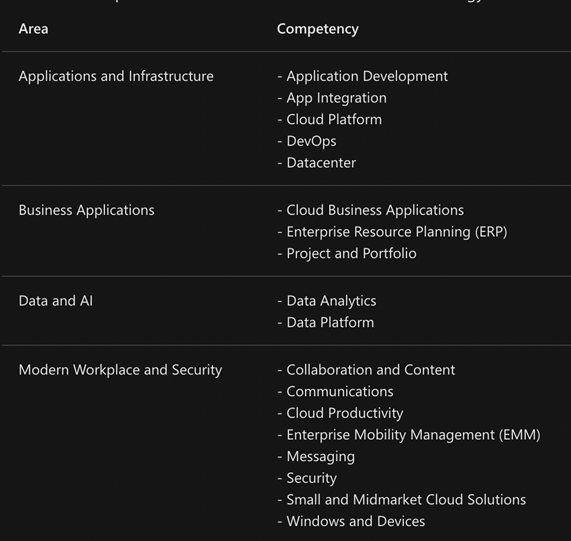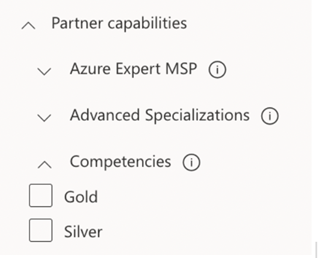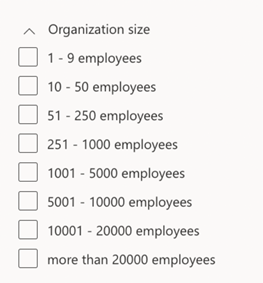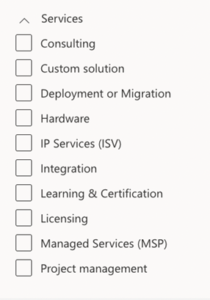How to Buy Dynamics 365
In this article, we’ll explain how to buy Microsoft Dynamics 365, the various options and what that process actually entails.
In this article, we’ll explain how to buy Microsoft Dynamics 365, the various options and what that process actually entails.
Table of Content
Buying D365 isn’t as straightforward as, say, creating a Teams account or subscribing to Office 365.
Technically, you can sign up for Dynamics 365 directly from the Microsoft 365 admin center, create an account, and gain access to its game-changing capabilities.
But— without an authorized partner on your side, you’ll have difficulty implementing D365 — let alone reaping any meaningful returns on your investment.
In this article, we’ll explain how to buy Microsoft Dynamics 365, and what that process entails.
Buying Microsoft Dynamics is one of those situations where cutting out the middle man won’t save you money in the long run — much less result in a successful implementation.
The fact is, D365’s modular approach makes it really difficult to select and implement the right modules and apps for your business.
Of course, it’s in Microsoft’s best interest to ensure its users get the most out of its solutions—and for that reason, encourages them to buy its products from its network of authorized partners.
Partners sell multiple solutions and weave them together.
For example, Velosio doesn’t just specialize in Dynamics 365, we also offer solutions for the Power Platform, Azure, and Office 365.
That means, our experts are prepared to help clients layer, combine, and customize different capabilities from across the Microsoft spectrum to drive very specific outcomes.
We also provide proprietary solutions that extend the value of D365’s core capabilities. For instance, AXIO is designed to support rapid implementation and adoption for new Dynamics Finance and Supply Chain Management users.
The advantage of working with a partner is that you’re working with someone who understands the various licensing options, user types, and the difference between Professional and Enterprise plans.
Yes, you’ll likely be paying for services like consulting, support, or implementation, but linking them to your Microsoft account unlocks more opportunities to extend the value of your ERP investment.
Different partners specialize in different industries, products, or service areas. On the partner side, providers can acquire silver or gold competency status by demonstrating expertise in any of the following areas:

Employees within the partner organization take classes and complete exams to demonstrate mastery of specific skills like data analytics, DevOps, or security.
Additionally, partners can take things a step further and pursue advanced specializations. These specializations correspond with four main solution areas:
Earning advanced specializations typically involves a third-party audit, exams/certifications, customer references, and a demonstrated capability to meet demanding requirements.
Anyway, partner competencies and advanced specializations feature heavily in Microsoft’s Partner Directory – allowing customers to use these qualifications as search filters.

For core business processes, you’ll likely want to opt for a Gold partner, as they bring more expertise/qualifications to the table. Silver partners still need to be vetted by Microsoft (which means they’re reputable, competent providers) but they may not have the same breadth or depth of skills as their Gold-certified counterparts.
If you’re looking for a provider that can help you navigate a complex data migration, you might want to seek out an Azure expert to ensure that the project delivers the best possible outcome.
Microsoft’s Partner Directory makes it easy to find a partner that meets your criteria. You’ll start your search by entering your location and service area radius. Then from there, you can drill down by filtering for specific capabilities, focus areas, services, etc.
The challenging part is, you’ll need to define your criteria in order to find the best partner for your business.
If you’re just getting started, selecting a partner based on a specific product or competency isn’t the best way to approach this. You’ll want to zoom out a bit and ask yourself the following questions:
Answering these basic questions gives you a place to start your search. For example, you might start by searching for providers that serve organizations of your size:

Then, you can filter those results by selecting the services you’re looking for.
If you’re a new Dynamics 365 user, you might check boxes for Deployment or Migration, Integration, Licensing, and Consulting.

Essentially, you’re looking for foundational solutions first – then later, you can layer on the more transformational solutions.
Luckily, the right partner can help with the latter – either by offering proprietary solutions for achieving specific goals, or by connecting you with another partner in their network with a more specialized focus.
The Cloud Solution Provider (CSP) is a cloud reseller program, where authorized partners can sell Microsoft products and manage client relationships directly from subscriber accounts.
Participating partners can bundle their own services, tools, and proprietary solutions with other Microsoft apps and third-party solutions — allowing them to bill clients on predictable monthly or annual basis.
The benefit here is, clients gain access to hands-on support, specialized solutions, and predictable costs — thus enabling cost-savings and new opportunities to create value.
Organizations with 250+ users — aka enterprise accounts — are eligible for Microsoft’s volume licensing agreement. This licensing model is a bulk discount of sorts, available to any business purchasing at least 500 licenses.
Note that this doesn’t mean that you need 500 users. You can mix and match licenses from across the entire Microsoft product catalog — Dynamics 365, Office 365, Azure, Power Apps, etc. — just so long as you hit the 500 mark.
To take advantage of this model, you’ll need to work with a Licensing Service Provider. Providers include partners offering enterprise ISV solutions, education & training, or those that specialize in large scale solutions for a specific sector like government, health care, or financial services.
To learn more about volume licensing options, you can download Microsoft’s program guides here.
Buying Microsoft Dynamics 365 is a complicated process that requires a lot of upfront work. It’s also a big risk.
There’s a lot of cash on the line, and if you miss the mark on implementation, you could face downtime, cyberattacks, and major blows to your reputation and the bottom line.
Velosio can help you make the right decisions when it comes to your ERP — and avoid the waste and missed opportunities caused by poor-fit solutions.
Our Microsoft experts know the entire ecosystem inside and out — D365, the Power Platform, Office 365, Azure — and help clients leverage the benefits of all available solutions to achieve critical outcomes.
You don’t have to do this alone. Learn how Velosio can help you achieve your organizations goals as an ISV Partner.
Talk to us about how Velosio can help you realize business value faster with end-to-end solutions and cloud services.
"*" indicates required fields